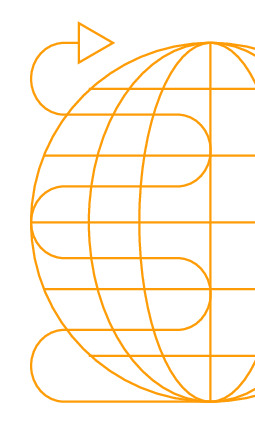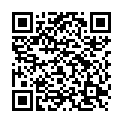|
|
|
| Module code: BITM-W-09 |
|
|
4SU (4 hours per week) |
|
5 |
| Semester: according to optional course list |
| Mandatory course: no |
Language of instruction:
English |
Assessment:
Project (can be repeated annually)
[updated 21.03.2018]
|
DFBTO-W-07 (P620-0532) International Tourism Management, Bachelor, ASPO 01.10.2018
, semester 4, optional course
DFITM-W-09 (P620-0481) International Tourism Management, Bachelor, ASPO 01.10.2020
, optional course
BITM-W-09 (P440-0090) International Tourism-Management, Bachelor, ASPO 01.10.2013
, optional course
BITM-W-09 (P440-0090) International Tourism-Management, Bachelor, ASPO 01.10.2015
, optional course
BITM-W-09 (P440-0090) International Tourism-Management, Bachelor, ASPO 01.10.2017
, optional course
BITM-W-09 (P440-0090) International Tourism-Management, Bachelor, ASPO 01.10.2020
, optional course
Suitable for exchange students (learning agreement)
|
60 class hours (= 45 clock hours) over a 15-week period.
The total student study time is 150 hours (equivalent to 5 ECTS credits).
There are therefore 105 hours available for class preparation and follow-up work and exam preparation.
|
Recommended prerequisites (modules):
BITM-112 Principles of the Tourism Sector
BITM-240 Marketing and Market Research in Tourism
BITM-320 Management in the Tourism Industry
BITM-331 Stakeholders in the Tourism Industry
[updated 28.08.2025]
|
Recommended as prerequisite for:
|
Module coordinator:
Prof. Dr. Achim Schröder |
Lecturer:
Dozierende des Studiengangs
[updated 28.08.2025]
|
Learning outcomes:
After successfully completing this module students will be able to:
- define basic concepts of tourism and provide information on current market structures and developments,
- identify special features of tourist products and derive their consequences for the marketing of tour operators,,
- critically analyze marketing concepts of tour operators,
- prepare a strategic marketing concept for a tour operator or something similar in a team (and, if necessary, with third parties) and select marketing tools and the corresponding marketing mix,
- document the most important results from their project, communicate them to the group (and, if necessary, to external parties) and make recommendations for action.
[updated 17.09.2018]
|
Module content:
- Basics and definitions
- Special features of tourist products and their consequences for tourism
- Vendor structure: tour operator/travel agent market
- Demand for tour operator and travel agent services
- Strategic marketing management in tourism
- Aspects of operational management of tour operators (service provision, travel price calculation and commission systems)
- Tourist travel management and sustainability
[updated 21.03.2018]
|
Teaching methods/Media:
- Seminaristic lecture
- Case studies (excursions, if necessary)
- Project work (independent development of a concept and its presentation)
[updated 21.03.2018]
|
Recommended or required reading:
- Bastian, H., Born, K. (Hrsg.), Der integrierte Touristikkonzern, Oldenbourg, München, latest edition
- Bieger, T., Tourismuslehre. Ein Grundriss, Haupt, Bern u. a., latest edition
- Dörnberg et al.: Reiseveranstalter-Management, Oldenbourg, München, latest edition
- Forschungsgemeinschaft Urlaub und Reisen (F.U.R.): Reiseanalyse, latest edition
- Freyer, W.: Tourismus. Einführung in die Fremdenverkehrsökonomie, Oldenbourg, München, latest edition
- Freyer, W.: Tourismus-Marketing. Marktorientiertes Management im Mikro- und Makrobereich der Tourismuswirtschaft, München, latest edition
- Haedrich, G., Kaspar, C. u. a. (Hrsg.), Tourismus-Management, de Gruyter, Berlin u. a., latest edition
- Kirig, A., Eckes, S., Tourismusreport, Zukunftsinstitut 2014
- Kirstges, T.: Grundlagen des Reisemittler- und Reiseveranstaltermanagements: Marktüberblick, Geschäftsmodelle, Marketingmanagement, rechtliche Grundlagen, Oldenbourg, München, latest edition
- Lohmann, M. et al., Urlaubsreisetrends 2025. Entwicklung der touristischen Nachfrage im Quellmarkt Deutschland. Die Reiseanalyse Trendstudie, 2014
- Mundt, J. W.: Reiseveranstaltung. Lehr- und Handbuch, Oldenbourg, München, Wien, latest edition
- Schmeer-Sturm, M.L, Reiseleitung und Gästeführung, München, 2012
- Schneider, O.: Die Ferienmacher _ eine gründliche und grundsätzliche Betrachtung über das Jahrhundert des Tourismus, TourCon, 2001
- Voigt, P.: Internationales Reiseveranstalter-Management, München, Oldenbourg, 2012
[updated 21.03.2018]
|


